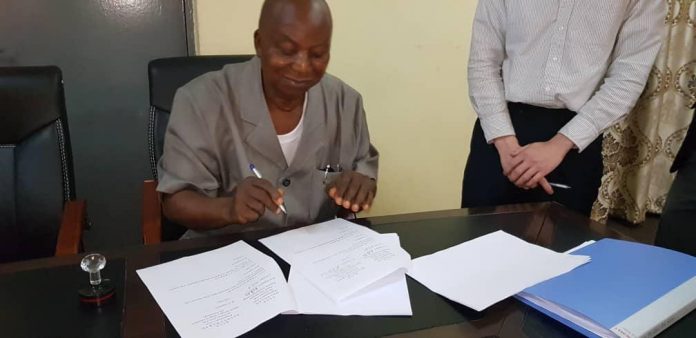By Prince Jacob Macauley – 9th August 2019
People of Sierra Leone have come to realize that we cannot keep on the same thing and hope to get different results. The economic policies that have been followed are not helping and we have an ongoing economic crisis that we are facing as a nation; the cost of fuel, the rise in foreign exchange rate and the lack of private sector investment are all part of the problem.
The sad reality is that we are looking for foreign investments to rescue us, but we have never seen anywhere in the world where foreign investment leads and domestic investment follows. It is always domestic investment that leads and foreign investment follows. As a country we have to build confidence in our own economy and the way to do that is to provide an economic stimulus and a strong plan to progressively transform our economy as we still remain a commodity dependent economy.
In my view I think the government is getting advised from the usual suspects like the IMF, for some reasons and for some years, since the global financial crisis, IMF was wrong in the issue of capital controls; they were wrong in the issue of inflation targets and they were also wrong in the issue of trade unions and labor market, and so as a nation, we all should know that there is a shift that has taken place internationally including recognition of austerity policies in Europe which is absolutely disastrous.
But it seems as if our treasury and key elements of government and I am not saying the entire government of President Bio, but there are key powerful members in the Bio government that are linked to this element because they testify to this rating institutions and agencies, they testify of global financial institutions, and it is high time they stop looking to the institutions for directions and is time we take responsibility and our sovereignty for our own economic direction.
Ordinary people are suffering in the country, there are no jobs for the youth, bread and butter is more difficult for everyone now; not only for the average man alone. What the international experience shows since the financial global crisis in particular countries that has taken responsibility to implement a large scale public investment program for example; to implement a degree of capital control etc.
Doing all these things that are aimed to protect the population and to boost the economy and these are the countries that are managed to weather the global financial crisis in the world, those that follow the advice of the deregulations and regularization as we are, we are facing the worst now. Also the central bank long ago should have done better to salvage the country’s economy by cutting down on interest rates.
The problem that is there for reserve in the bank in order to attract inflows through the maintenance of high interest rate to attract short term inflows to maintain the high interest rate policies and the problem of high inflation rate in Sierra Leone cannot be dealt with through the blank instrument of interest rate is like you stifle economical activities.
One important point the government should take into consideration is that there official policies where the economy in contracting now and where we are and have been for a number of years. They need to introduce a counter-cyclical fiscal monitoring policies, but what they are doing now is the opposite by tightening our monitoring and fiscal policies and large cut backs in other words, public investments suffer and as a result the cost of capital is too expensive for small businesses and manufacturers to invest in the productivity sector and that is what we need urgently and critically to help boost the country’s economy.
















